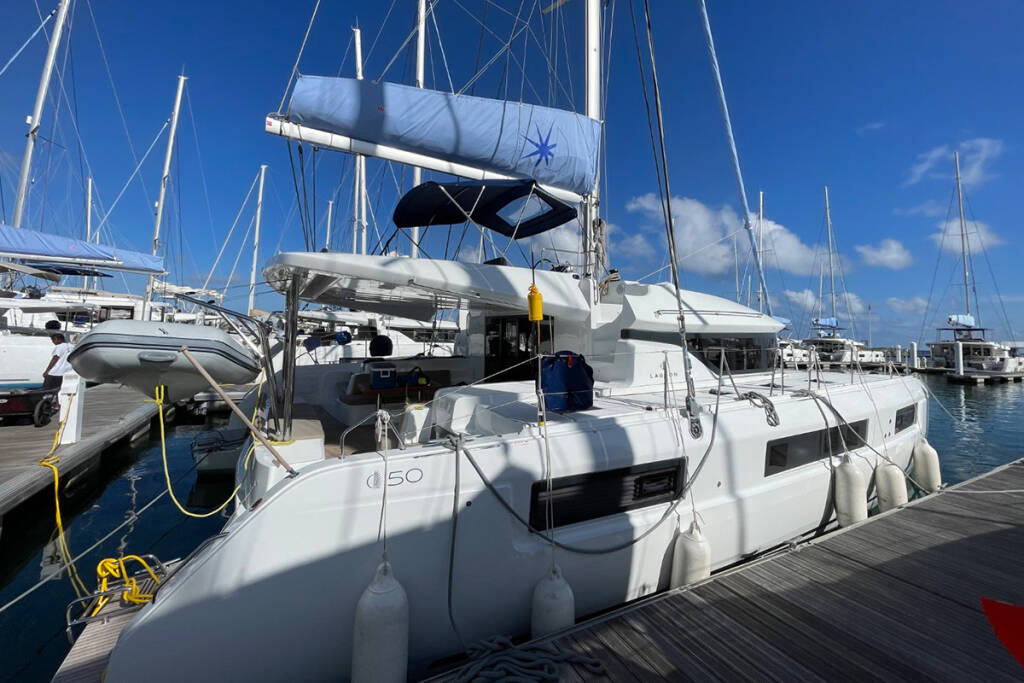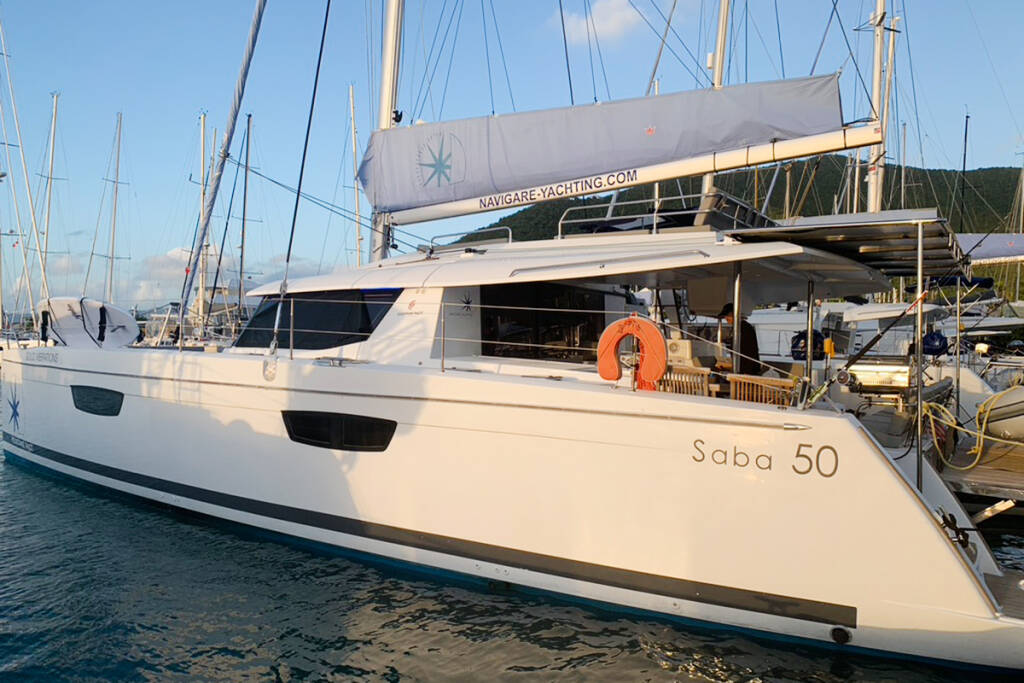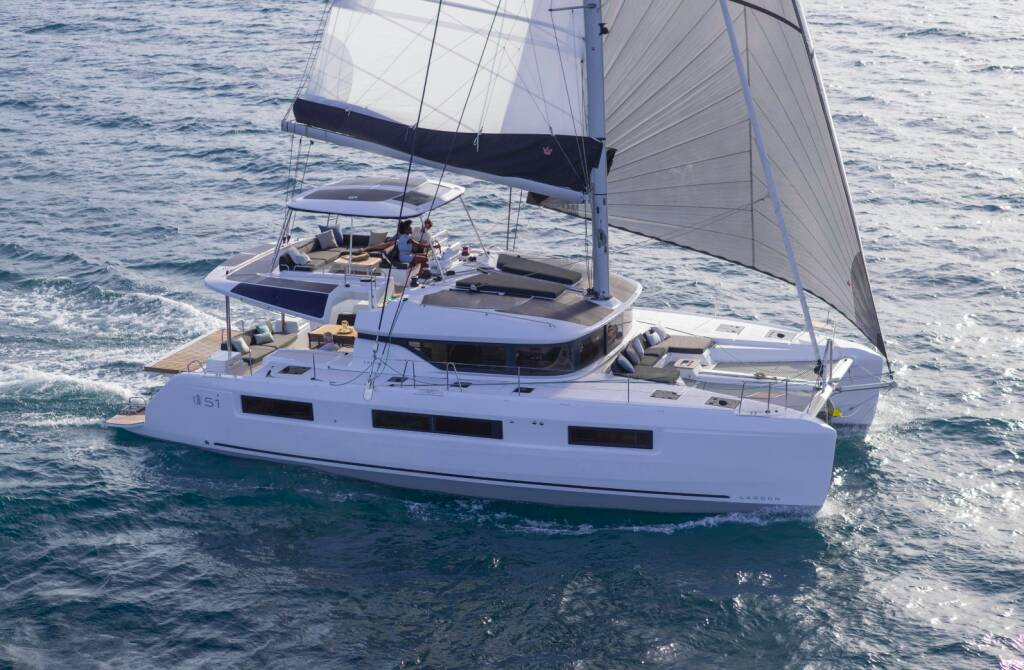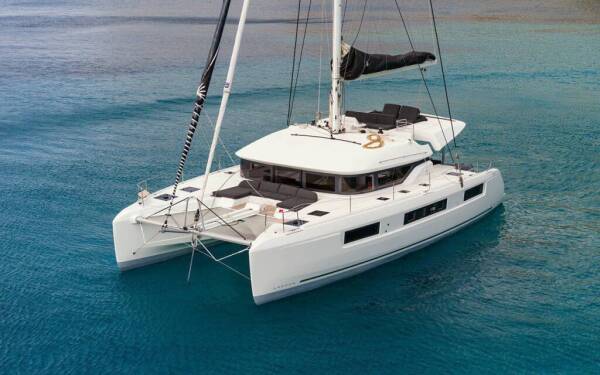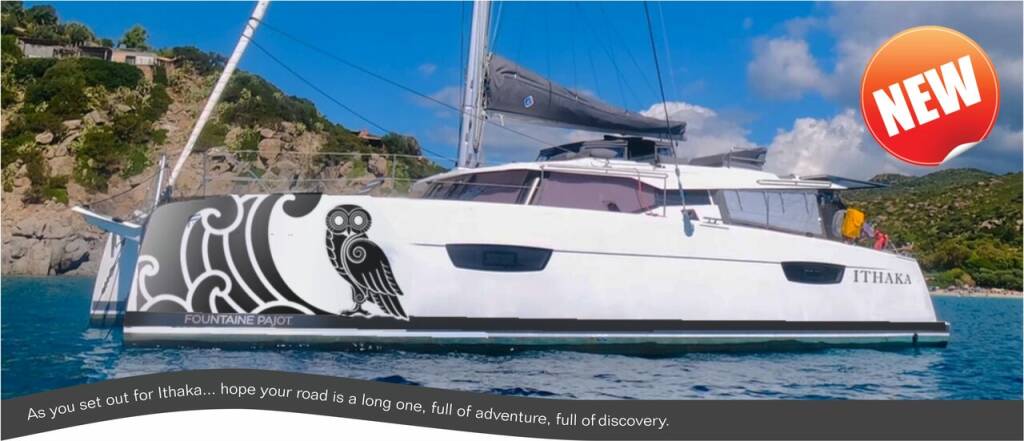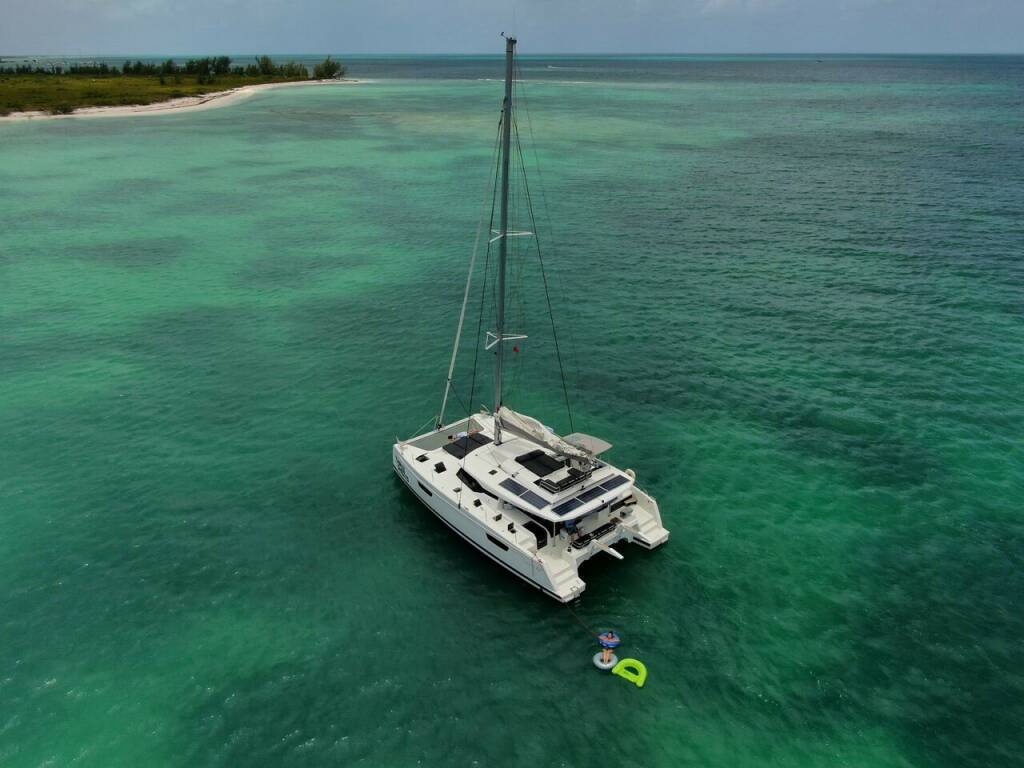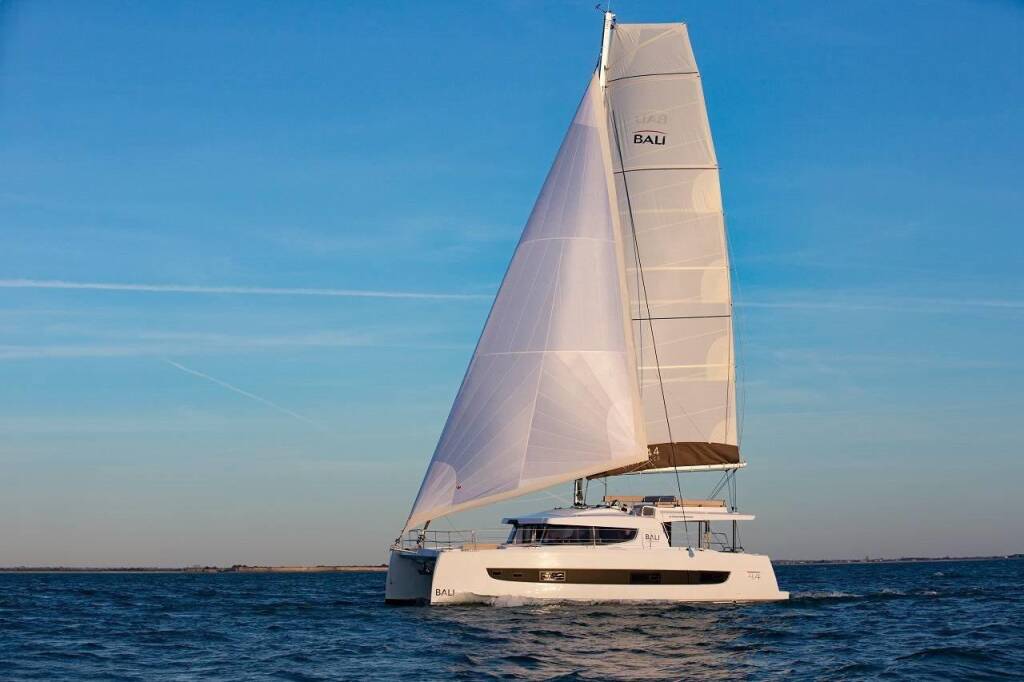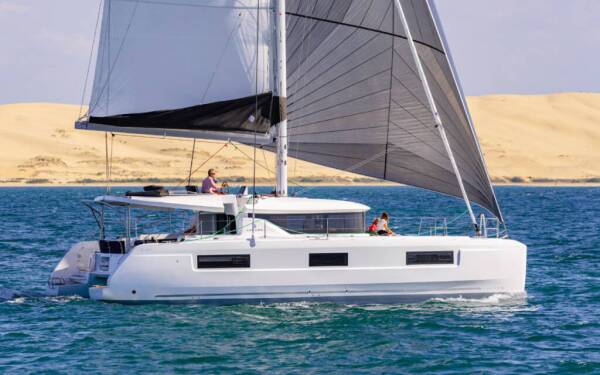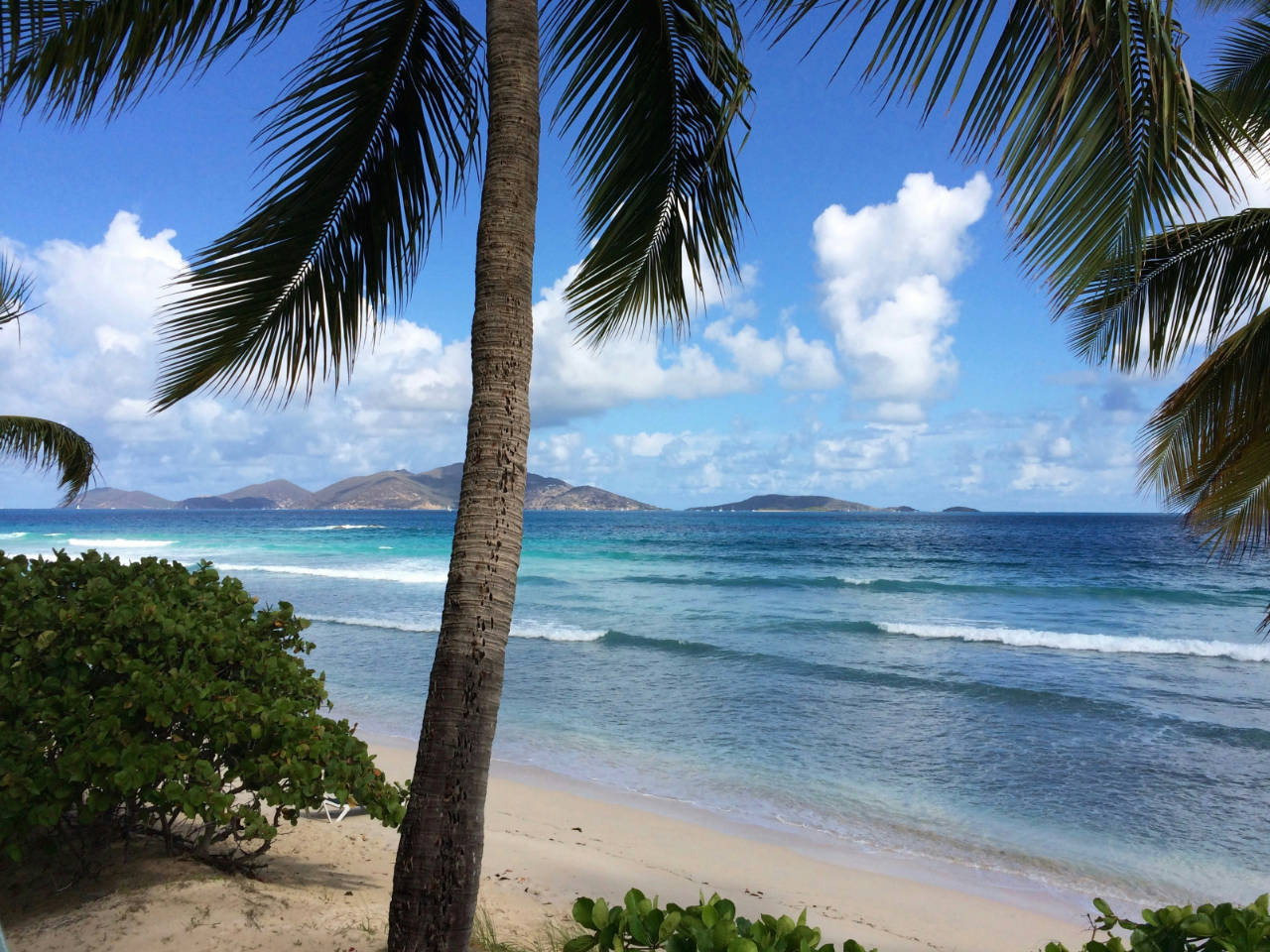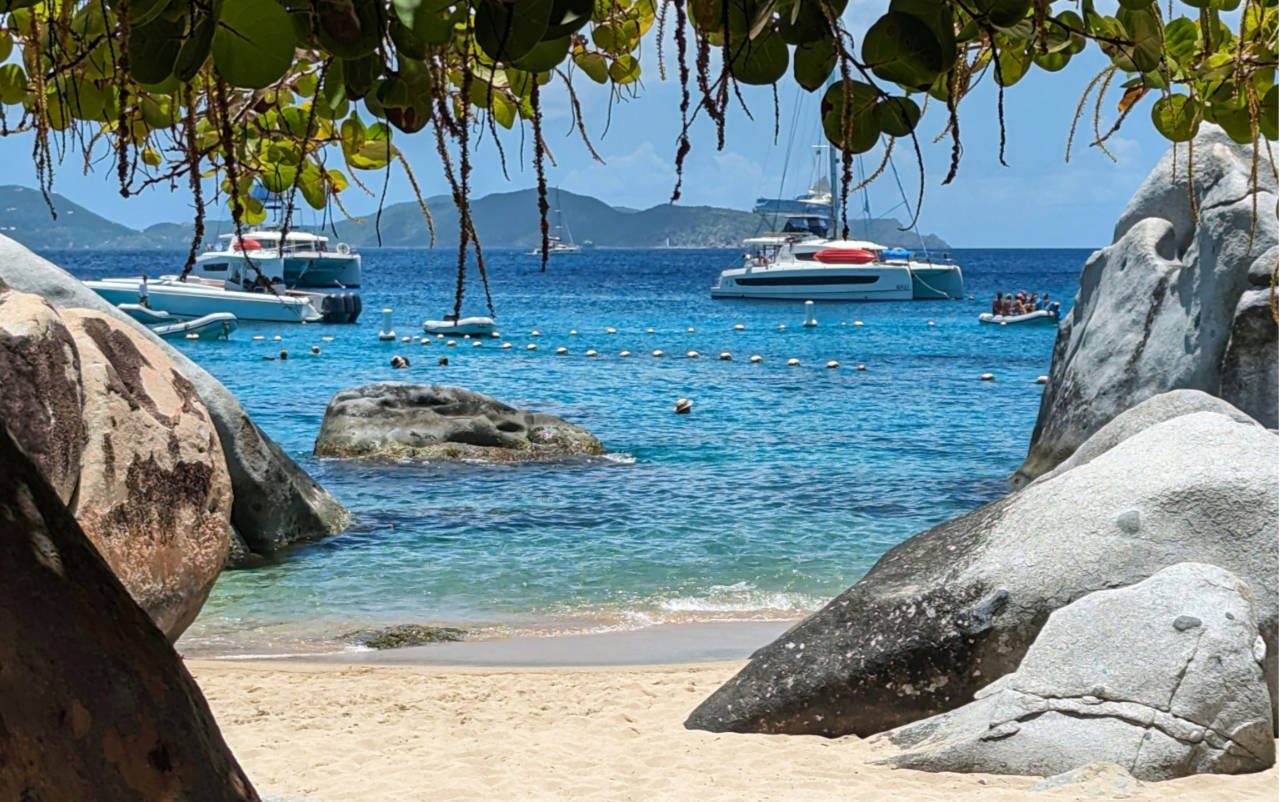British Virgin Islands
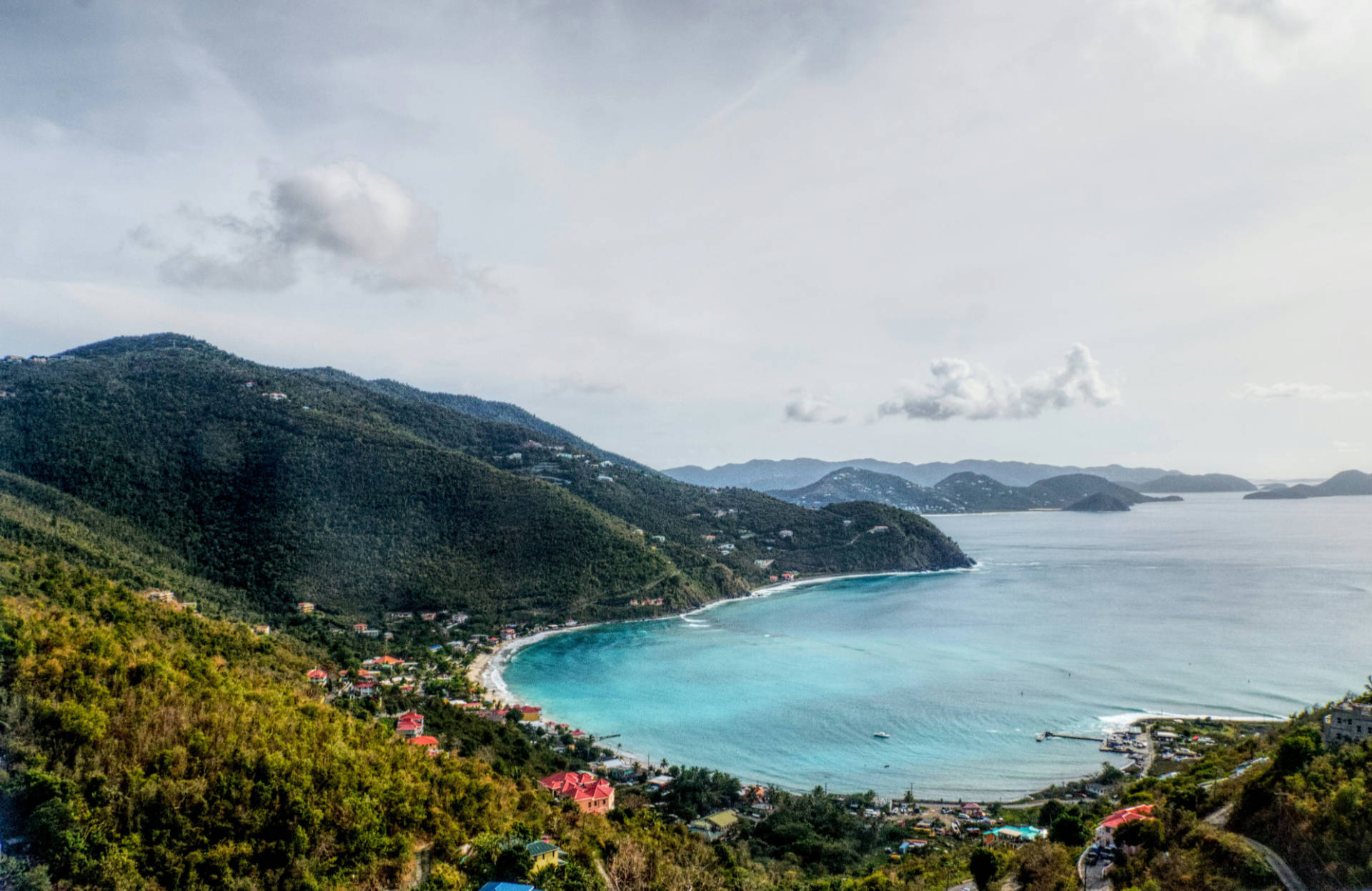
British Virgin Islands: A Caribbean dream
The British Virgin Islands (BVI) are a stunning archipelago in the eastern Caribbean consisting of around 60 islands and islets. Characterised by its natural beauty and luxurious sailing conditions, this British overseas territory is a dream destination for nature lovers, adventurers and those seeking relaxation.
Tortola, the largest island in the BVI, is the centre of the archipelago and is home to the capital Road Town. This lively town is a blend of colonial history and modern convenience with numerous restaurants, shops and cultural attractions. The island is known for its green hills that offer spectacular views of the turquoise waters. Popular beaches such as Cane Garden Bay and Smuggler's Cove are perfect places to relax and soak up the Caribbean sun.
Virgin Gorda, the third largest island, is famous for the Baths, an impressive collection of huge granite boulders that form natural pools and caves. This unique geological formation is one of the BVI's most famous sights. Virgin Gorda also offers luxurious resorts and marinas that attract discerning travellers.
Jost Van Dyke, a smaller but equally charming island, is known for its laid-back beaches and lively beach bars. The Soggy Dollar Bar, home of the famous Painkiller cocktail, is a must for any visitor. The island's relaxed atmosphere makes it the ideal place to enjoy the Caribbean lifestyle.

Anegada, the northernmost inhabited island, differs from the other BVI islands in its flat landscape. The island is known for its endless white sandy beaches and rich marine life. The Horseshoe Reef, one of the largest coral reefs in the world, is a paradise for divers and snorkellers.
In addition to the breathtaking nature, the British Virgin Islands also offer ideal conditions for sailors. Sheltered waters, constant winds and numerous anchorages make the BVI one of the best sailing destinations in the world. Annual events such as the BVI Spring Regatta attract sailing enthusiasts from all over the world.
All in all, the British Virgin Islands are a jewel of the Caribbean, offering a perfect blend of natural beauty, cultural richness and first-class leisure opportunities. From adventure to relaxation to luxury, the BVI has something for everyone.
Weather and climate

The British Virgin Islands (BVI) enjoy a warm, tropical climate that makes them an attractive destination all year round. The climate can be divided into two seasons: the dry season and the rainy season.
Dry season (December to April): This period, also known as the high season, offers the best weather conditions for sailors. Temperatures are between 24°C and 28°C and humidity is lower, making the weather pleasant and conditions ideal for outdoor activities. The winds are usually moderate to strong and offer optimal sailing conditions.
Rainy season (May to November): During the rainy season, temperatures are slightly higher, ranging from 26°C to 31°C. The rainfall is usually short and heavy, especially in the afternoon. Humidity is higher and there is an increased risk of tropical storms and hurricanes, especially from August to October. Nevertheless, there are still many sunny days during this time, which are ideal for sailing and other activities.
Sailing conditions

The British Virgin Islands are known for their excellent sailing conditions, making them one of the most popular sailing destinations in the world. Here are some of the main reasons why the BVI is a sailor's paradise.
Consistent trade winds: The north-easterly trade winds that blow all year round provide consistent and predictable sailing conditions. These winds provide a pleasant breeze that makes sailing enjoyable and exciting.
Sheltered waters: The islands of the BVI are well protected by their geographical location and the numerous bays and anchorages. This makes the waters calm and ideal for relaxed sailing, especially for less experienced sailors.
Varied sailing routes: The proximity of the islands to each other allows sailors to explore different islands and bays in a short time. Popular routes lead from Tortola to Virgin Gorda, Jost Van Dyke and Anegada, with each island offering unique landscapes and experiences.
Excellent marinas and services: The BVI has a variety of well-equipped marinas and charter companies offering a full range of services, from boat hire and maintenance to provisioning and technical support.
Safety and precautions

Hurricane season: There is an increased risk of hurricanes during the rainy season. Sailors should pay particular attention to the weather forecasts during this time and take appropriate precautions. Many marinas offer special protection measures and safe anchorages in the event of a storm.
Navigation: Although the waters of the BVI are relatively safe, good navigation is essential. Modern navigation equipment and up-to-date nautical charts should always be on board.
Reef protection: The BVI is surrounded by coral reefs, which are not only beautiful but also fragile. Sailors should take care to anchor in designated anchorages and protect the reefs.
Overall, the British Virgin Islands offer an unrivalled sailing experience with ideal weather and sailing conditions. The combination of constant winds, calm waters and spectacular scenery makes it a perfect destination for sailing enthusiasts.
Travelling by plane

The British Virgin Islands (BVI) are easy to reach despite their remote location. Most international visitors arrive via one of the major international airports in the region and then fly on to the BVI.
Travelling internationally: The closest international airports are Luis Muñoz Marín International Airport (SJU) in San Juan, Puerto Rico and Princess Juliana International Airport (SXM) on Sint Maarten. There are regular flights from these airports to the BVI.
Direct flights: There are some direct flights from the USA and other parts of the Caribbean to Terrance B. Lettsome International Airport (EIS) on Beef Island, which is connected to Tortola via a bridge. Airlines such as American Airlines and InterCaribbean Airways offer such connections.
Onward journey to the marinas
After arriving on Beef Island, there are several ways to get to the various marinas, many of which are located on Tortola.
Taxi: Taxis are readily available at the airport and offer a convenient way to get to the marinas on Tortola. The journey from Beef Island to the main marinas such as Nanny Cay Marina or Road Town Marina takes around 20-30 minutes.
Ferry: There are regular ferry connections to other islands such as Virgin Gorda or Jost Van Dyke. The ferries run between the main islands and offer a scenic and relaxing way to get around.
Private transfers: Many yacht charter companies offer private transfers from the airport to the marinas. These should be booked in advance and allow for a stress-free journey.
On site

Local currency: The official currency of the BVI is the US dollar (USD). It is advisable to have some cash with you, although credit cards are accepted everywhere.
Language: The official language is English, which makes it easier to communicate with the locals and navigate the region.
With these tips, yacht charter customers can plan and enjoy their trip to the British Virgin Islands to the fullest. The combination of easily accessible airports, convenient transfer options and comprehensive service in the marinas ensures that your sailing adventure in the BVI will be smooth and unforgettable.
Geographical location
The British Virgin Islands (BVI) are located in the eastern Caribbean, approximately 96 kilometres east of Puerto Rico and west of Anguilla. The archipelago is part of the Virgin Islands archipelago, which also includes the US Virgin Islands. The BVI consists of around 60 islands and islets, of which around 15 are inhabited. The most important islands are Tortola, Virgin Gorda, Jost Van Dyke and Anegada.
Coastline
The coastline of the British Virgin Islands is extremely varied and offers an impressive mix of rocky cliffs, sheltered bays, long sandy beaches and hidden anchorages. This diversity makes the BVI one of the best sailing destinations in the world. Here are some of the key features of the coastline:

Tortola: The largest island, Tortola has a coastline of rocky cliffs and beautiful beaches. Cane Garden Bay and Smuggler's Cove are two of the most famous beaches. West End and Road Town are important harbours for sailors with well-equipped marinas and numerous services.
Virgin Gorda: The island is known for its striking granite cliffs and rock formations. The Baths, a geological wonder, is one of the most famous places on the island, where huge granite boulders form natural pools and caves. North Sound is a popular sailing area with many safe anchorages and exclusive resorts.

Jost Van Dyke: This smaller island has a more relaxed atmosphere and is known for its white sandy beaches and lively beach bars. Great Harbour and White Bay are popular anchorages. The coastline is ideal for swimming, snorkelling and enjoying the local culture.
Anegada: Unlike the other islands, Anegada is a flat coral island. It is surrounded by endless white sandy beaches and one of the largest coral reefs in the Caribbean, the Horseshoe Reef. The flat topography and clear waters make Anegada a paradise for divers and snorkellers.
Norman Island: Famous as the inspiration for Robert Louis Stevenson's "Treasure Island", Norman Island offers sheltered anchorages and prime snorkelling spots such as the Caves and The Indians. These small coves and reefs are rich in marine life and ideal for underwater exploration.
Nature reserves and marine parks
The British Virgin Islands pride themselves on their conservation efforts. Many coastal areas and marine parks are protected to preserve the rich biodiversity. The most important nature reserves are:
The Wreck of the RMS Rhone Marine Park: A famous diving destination that protects the wreck of the mail steamer RMS Rhone, which sank in 1867. It is a favourite destination for wreck divers.

Sage Mountain National Park: Located on Tortola, this park protects tropical forests and offers hiking trails with marvellous views of the coast.
Jost Van Dyke Marine Park: This area includes important coral reefs and mangrove forests that harbour a variety of marine life.
All in all, the British Virgin Islands offer a spectacular coastline that promises both adventure and relaxation. Sheltered bays, clear waters and stunning landscapes make the BVI a perfect destination for sailors, divers and nature lovers. The combination of natural beauty and good environmental stewardship helps to ensure that the BVI offers an unrivalled experience for all visitors.
Tortola
Tortola is the largest and most populous island in the British Virgin Islands and the bustling centre of the archipelago. The capital, Road Town, offers a variety of services including restaurants, shops and cultural attractions. The island is known for its green hills and stunning beaches such as Cane Garden Bay and Smuggler's Cove. Tortola is a major base for sailing adventures in the BVI with well-equipped marinas and charter companies. Sage Mountain National Park offers hiking trails through dense tropical rainforest and marvellous views of the islands. The annual BVI Spring Regatta attracts sailors from all over the world and makes Tortola the centre of maritime life in the region.
Virgin Gorda
Virgin Gorda, the third largest island in the BVI, is famous for its Baths, an impressive collection of granite rocks that form natural pools and caves. This geological feature is a must-see for any visitor. Virgin Gorda also offers luxurious resorts and first-class marinas for the most discerning travellers. North Sound, a large bay in the north of the island, is a popular sailing area with safe anchorages and exclusive facilities. Hiking enthusiasts can explore Gorda Peak National Park, which offers spectacular views of the surrounding islands. The tranquil beaches and clear waters make Virgin Gorda an ideal destination for relaxation and water sports.
Jost Van Dyke
Jost Van Dyke is known for its relaxed beaches and lively beach bars and offers an authentic Caribbean atmosphere. The island is home to the famous Soggy Dollar Bar in White Bay, where the legendary Painkiller cocktail was invented. Great Harbour is a popular anchorage and venue for New Year's Eve parties and other celebrations. The small, sheltered bays and calm waters make Jost Van Dyke an ideal destination for swimming, snorkelling and relaxing boat trips. The island also offers the opportunity to hike through the tropical landscape and enjoy breathtaking views of the Caribbean Sea.

Anegada
Anegada, the northernmost inhabited island in the BVI, differs from the other islands in its flat topography and extensive white sandy beaches. Known for the Horseshoe Reef, one of the largest coral reefs in the world, Anegada is a paradise for divers and snorkellers. The island is less developed and offers a quiet, secluded atmosphere. Visitors can enjoy fresh lobster in the local restaurants, which are known for their seafood specialities. Flamingo spotting at the Flamingo Pond Nature Reserve and exploring the salt ponds are also popular activities. Anegada offers the perfect blend of nature and relaxation.
Norman Island
Norman Island, the inspiration for Robert Louis Stevenson's "Treasure Island", is known for its hidden coves and mysterious caves. The Caves and The Indians are famous snorkelling and diving spots that are home to a rich underwater world. The island offers sheltered anchorages such as The Bight, which are ideal for sailors. Norman Island is uninhabited, giving it a tranquil, unspoilt atmosphere perfect for adventurers seeking a Robinson Crusoe experience. Pirate's Bight Bar & Restaurant offers a unique opportunity to dine in a historic setting, making Norman Island a fascinating destination in the BVI.
History

The history of the British Virgin Islands (BVI) is rich and varied, characterised by indigenous cultures, European colonial powers and pirate stories. The islands were originally inhabited by the Arawak and later the Caribs before Christopher Columbus discovered them on his second voyage to the New World in 1493. The BVI's strategic location made it a favourite refuge for pirates in the 17th and 18th centuries, including the infamous Blackbeard. The British eventually took control of the islands and used them for sugar cane cultivation, in which slave labour played a tragic role. Today, the remnants of this period, such as Fort Burt and Mount Healthy Windmill, are fascinating historical sites that provide an insight into the islands' colonial past.
Culinary delights

The cuisine of the British Virgin Islands is a delicious blend of Caribbean, African and British influences. Fresh seafood plays a central role, with lobster, mussels and fish frequently appearing on menus. Popular local dishes include fish and fungi, a fish dish served with a lump of cornmeal, and conch chowder, a savoury clam chowder. Roti, curry-filled flatbreads, and Johnny cakes, deep-fried dough balls, are also local favourites. The islands are known for their rum cocktails, especially the famous Painkiller, which was invented at the Soggy Dollar Bar on Jost Van Dyke. Visitors can enjoy the local cuisine in a variety of restaurants, from simple beach bars to upscale eateries.
Cultural
The cultural landscape of the BVI is characterised by a rich heritage and vibrant traditions. Music and dance play a central role in the lives of the islanders, with calypso, reggae and funky music being the most popular genres. The annual carnival on Tortola and the August Monday festival on Virgin Gorda are highlights in the cultural calendar, when colourful parades, music and dance enliven the streets. Arts and crafts are also an important part of the culture, with traditional basketry and handmade souvenirs on sale at local markets. Faith and spirituality play an important role in the lives of the people, which is reflected in the multitude of churches and religious festivals. The BVI is also known for its maritime culture, with sailing regattas and boat races being an integral part of life on the islands.
The British Virgin Islands offer a rich blend of history, gastronomy and culture that characterise island life and offer visitors unforgettable experiences. From historic sites to delicious local dishes and vibrant cultural festivals, the BVI is a fascinating destination that promises both relaxation and discovery.
British Virgin Islands - a paradise of diversity
The British Virgin Islands are a true jewel of the Caribbean, captivating with their natural beauty as well as their rich culture and history. With its beautiful beaches, crystal clear waters and excellent sailing conditions, the BVI offers a perfect blend of adventure and relaxation.

The historical influences of indigenous cultures, European colonial powers and the pirate era have shaped the islands and made them a fascinating destination. Historic sites such as Fort Burt and Mount Healthy Windmill tell of the islands' colourful past and give visitors an insight into the history of the BVI.
Culinary-wise, the BVI offers a variety of delicious dishes that reflect Caribbean, African and British influences. From fresh seafood to savoury stews and delicious rum cocktails such as the famous Painkiller, the BVI culinary scene is a treat for the senses.
Culturally, the British Virgin Islands are lively and diverse. Music, dance and arts and crafts play a central role in the lives of the islanders. Festivals such as Carnival on Tortola and the August Monday Festival on Virgin Gorda are highlights in the cultural calendar and offer a unique opportunity to experience the vibrant culture of the islands at first hand.
Sheltered bays, constant trade winds and well-equipped marinas make the BVI one of the best sailing destinations in the world. Whether you want to explore the impressive granite cliffs of Baths on Virgin Gorda, enjoy the relaxed beaches of Jost Van Dyke or discover the unspoilt reefs of Anegada, the British Virgin Islands offer something for everyone.
All in all, the British Virgin Islands are an unrivalled destination that captivates with its natural beauty, cultural diversity and historical depth. A visit to these islands promises unforgettable experiences and lasting memories.
Tortola
Tortola, the largest island in the British Virgin Islands (BVI), is the beating heart of this breathtaking archipelago. Measuring approximately 20 km in length and 5 km in width, Tortola offers a fascinating blend of natural beauty, cultural heritage and modern amenities, making it an ideal destination for all types of holidaymakers.
Scrub Island
Scrub Island is one of the hidden gems of the British Virgin Islands (BVI). The small private island is located just a few kilometres north-east of Tortola and offers an exclusive and luxurious escape from everyday life. Scrub Island is known for its breathtaking natural beauty, crystal-clear waters and first-class resorts that meet the highest standards.

